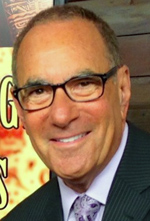By Michael R. Mantell, PhD

SAN DIEGO — I’m convinced that if there was a drug that offered all of the benefits that play does, it’d be the biggest seller on the planet. But who needs to buy a pill when play is free, available 24 hours a day, and no prescription is ever needed?
Plato did prescribe, “Life must be lived as play,” suggesting he understood the value of this pervasive, natural, purposeless, pleasurable phenomena that typically begins with anticipation and ends with a smile. He also wisely observed, “You can tell more about a person in one hour of play than in a year of conversation.”
This is because when we play, there is a genuine alignment of body, mind and spirit, that promotes our ability to contact the deeper realm of our real lives. Abraham Maslow, the great American psychologist and creator the concept of “self-actualization,” describes the moments in our lives when we are fully engaged in activities such as play, “more integrated, less split, and more perfectly actualized.”
Wow! Imagine that just by throwing a Frisbee, playing tag, climbing trees, or doing a crossword puzzle we can be more perfectly actualized! And here I thought it was just fooling around, time wasting and unproductive. At least that’s what grownups have been taught isn’t it? We have to deal with problems, work, stress, the economy, putting food on the table and gas in our cars (if not plugging them in to a socket). Our culture teaches us not to waste time.
The truth is that not playing is wasting time. Not playing is being unproductive. You see play creates more happiness by helping us to reduce stress and increase self-esteem. It connects us to others, provides us with enjoyment, fun, self-expression and relaxation. Play releases serotonin and dopamine, both central to avoiding depression and anxiety. It also builds health by improving our physical condition, reduces obesity, improves our fine and gross motor skills, and promotes self-help. Third, play actually makes us smarter by boosting our creativity, abstract thinking and imagination, our problem-solving skills, or empathy and improves our ability to master new concepts. We learn better communication skills, vocabulary, story telling and social skills.
The opposite of play isn’t work. It’s loneliness, depression, a lack of optimism, anxiety and despair. So here are some suggestions to improve your playfulness:
-
- Change the way you think about play. Happiness is not what you have but the way you think. Don’t draw a distinction between work and play. Forget about “work life balance.” Flourish in both arenas and make it all a choice to play, enjoy and thrive continuously throughout the day.
- Recall your childhood playtime favorites and dust them off. Doing so will bring you back to life and carry you through life.
- Find friends and buddies that enjoy being playful. That doesn’t mean constantly joking around and never being serious. It means people who value the play as you do.
- Play with children, grandchildren, pets, and find your playground. Take your children down the slide with you and you’ll find that everyone going down the slide is a child—again.
*
Dr Michael Mantell, based in San Diego, provides coaching to business leaders, athletes, individuals and families to reach breakthrough levels of success and significance in their professional and personal lives. Mantell may be contacted via michael.mantell@sdjewishworld.com